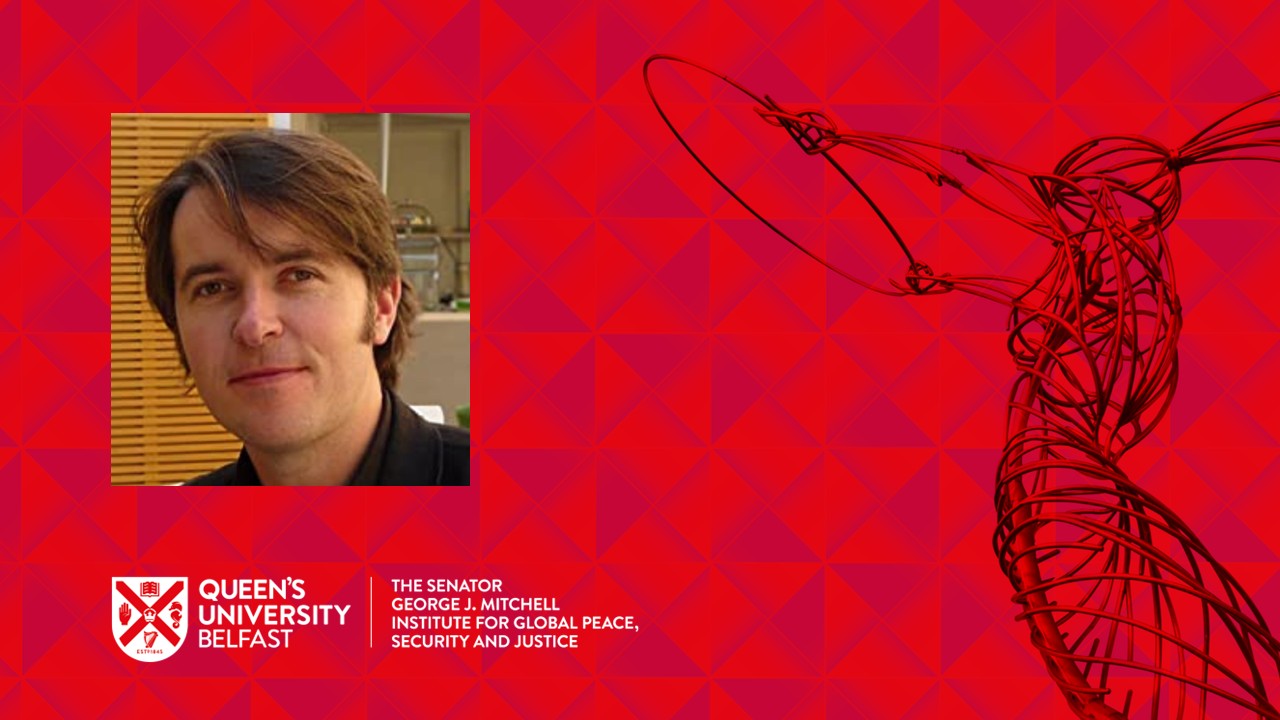Peace Walk in the Glens of Antrim
Dr Garrett Carr

On 16 July 2025 I was delighted to join Peace Walks, a new initiative founded by two Yale World Fellows, Leon McCarron and Federica Du Pasquier, for a day-long walk in the Glens of Antrim. The scheme creates opportunities for encounter, dialogue and learning all within the format of hikes along walking trails and through open country. Walking encourages mingling and conversations that may flow more naturally and productively than meetings around tables. The group consisted of two Yale World Fellows, a few guests like myself and ten young Ukrainian women who had applied to join the trip. They were from different parts of Ukraine, some from areas under Russian occupation.
First thing in the morning, before leaving their hotel, we had a seminar with Irish language educator Linda Ervine. She is from what’s still sometimes called the PUL – Protestant, Unionist, Loyalist – community and she is the Irish Language Officer at Turas, an Irish-language programme that, breaking new ground, is based in east Belfast. Linda spoke brilliantly on her realisation that the Irish language could be hers too. ‘There are a lot of people from within my community who reject their Irishness,’ she said, ‘but I embrace it. I was born in this island and to reject that fact would be to say that I am a usurper. I’m not a usurper, I’m a native of this land.’
Linda’s talk set the theme for the day; language and living with each other. This was largely what the Ukrainians and I spoke about as we walked along the ridges of Black Hill and down towards the sea. Many had Russian as a first language but had rejected it upon the 2022 invasion. I’d go so far as to say that they now saw the language as an enemy, part of a long-standing Russian desire to erase their cultural distinctiveness. I suggested that some Russian culture has transcended these designs, citing Fyodor Dostoyevsky, and pointing out that his work is now part of the world’s heritage. They were unimpressed, arguing that Russia has always used political power to ensure that its cultural output bulldozes anything else from the region. They asked if I had ever read a Ukrainian novel and I confessed that I had not, I couldn’t even name one. I was soon educated about a few.
The Yale International Leadership Centre (ILC) has helped incubate this project. Emma Sky, its director, joined us on the walk too. The Peace Walks initiative is of course concerned with peace-making, but for the moment the group spoke mostly of language as an element of conflict and had a cold attitude towards Russian. It would perhaps be more complex for their parents, who will have lived fifty years and more as Russia speakers and had many major life events experienced in the language. There is also the entwinement of the Ukrainian and Russian languages to consider. The group agreed that they are about 30 percent similar, but this seemed to cause them little ambiguity, the languages are different enough for them to see a clear frontier and they wish to defend it. Through the starkness of their example I was reminded of how much progress has been made with the Irish language in Northern Ireland, by Linda Ervine among others. The Peace Process made Ervine's work possible. The Ukrainians, on the other hand, are still in a war-footing. It is hard to blame them for that, some experience regular drone attacks upon their cities. They displayed striking resolve. If I was to attempt to dig out more nuanced impressions from the short time I spent with these young women say it was of a kind of stoic grief for what they have lost; their lives have been forced into strange contortions and they are constantly aware of the injustice their country is suffering. Gesturing at the rest of the entirely female group one said to me: ‘Boys don’t get to do such things.’
McCarron and Du Pasquier’s Peace Walks initiative is a brilliant way to set-up such conversations. A walk, I think, results in a certain thoughtful style of conversation, while also allowing space for personal reflection. For me it was just one day but the Ukrainians were here for a week, walking daily and meeting many other leaders and peacemakers working in Northern Ireland. I’m sure it was an enlightening and memorable experience for them. It certainly was for me.
Dr Garrett Carr
Dr Garrett Carr is a Senior Lecture in Creative Writing in the School of Arts, English and Languages. His book The Rule of the Land: Walking Ireland’s Border was published in 2017 by Faber. It was a BBC Radio 4 Book of the Week and described as “Great writing about landscape and history” by Colm Tóibín in the Guardian. His latest book The Boy from the Sea (Picador 2025) is a novel set in Co Donegal. “A ruefully funny portrait of a dysfunctional family in a struggling town,” says Emma Donoghue, author of Room and The Wonder. “I was gripped.”
Media
